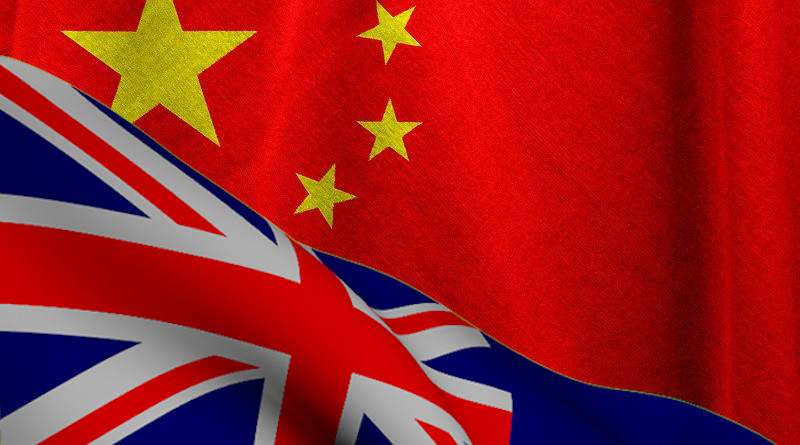Time For Australia To Counter Beijing’s Cross-Border Coercion And De-Securitize ‘Chinese Influence’ – Analysis
By Andrew Chubb*
The change of government in Canberra opens the possibility of a thaw in Australia’s diplomatic relations with China. Since 2017, the Australian government has adopted an array of tough China policies on issues ranging from 5G communications to COVID-19. In response, Beijing imposed a diplomatic freeze and since May 2020, informal economic sanctions on Australian exports including barley, coal, beef and wine.
Substantive Australian policy concessions to Beijing are off the table, but the incoming Labor government has the opportunity to lead Australia’s China policy debate away from its current divisiveness, while getting serious about the still-unaddressed impact of the Chinese government on political liberties within diaspora communities.
The key to resolving this apparent contradiction is to adopt a rights-protection approach focused on strengthening Australia’s democratic rights protection institutions — in contrast to the previous government’s security-centric view centred on a corrosive narrative of subversive ’Chinese influence’.
Among the many recent bones of contention between Australia and China, none were as explosive as foreign interference: ’covert, coercive or corrupting’ involvement in Australian politics and public discourse on behalf of a foreign state. Few in Australia would disagree that activities fitting this pithy ’three Cs’ description ought to be prohibited, with stern penalties attached.
But rather than defining interference in such terms, Australia’s high-profile 2018 legislative response criminalised a far broader sweep of activity, attracting a deluge of objections from legal experts, civil society and academics over its radical expansion of the definition of ’national security’. Critics — many of whom had no connection to China — argued the legislation in effect would outlaw activities ranging from whistleblowing and academic research to peaceful protest.
At the same time, the Espionage and Foreign Interference (EFI) laws have done little to improve the situation of diaspora communities facing coercion by foreign states. This is due to flaws in the legislation, as well as modern communications technologies that make it easier for foreign states to threaten targets from abroad.
The Australian Security Intelligence Organisation (ASIO) has a longstanding interest in countering transnational coercion but has been focused on the potential that targets could be coerced into cooperating with foreign security agencies. Approaching the issue primarily in this way recasts the victims as threat vectors.
The public discussion of ’Chinese influence’ that propelled the EFI legislation through the parliament placed Chinese-Australians in public life under a racialised political microscope. Used as a shorthand for the PRC party-state’s nefarious overseas political activities, ’Chinese influence’ is divisive and ambiguous. The term collapses the distinction between the Chinese community, culture and the PRC party-state, and projects an unwarranted association between the Chinese Communist Party and Chinese-Australians.
Even if users of the term are aware of the nuances, their audiences often are not. Surveys indicate an alarming prevalence of anti-Chinese racism in the community. Not surprisingly, far-right politicians have also increasingly seized upon the ’Chinese influence’ narrative, stoking community division.
The most vivid illustration of the dangerous turn in Australia’s policy discourse was an October 2020 Senate hearing in which three Chinese-Australian witnesses were challenged to ’unconditionally condemn the Chinese Communist Party dictatorship’. No other witnesses — nor any politicians — were subjected to this loyalty test, which then prime minister Scott Morrison himself would not have passed.
The election results suggest not only Chinese-Australians but many others in the community were deeply uncomfortable about these developments. The new government needs to de-securitise the idea of ’Chinese influence’ as a threat to the Australian nation, while addressing the ongoing loopholes that allow foreign governments, including the PRC, to coerce political targets within Australia’s borders.
The new Australian government should establish a Transnational Rights Protection Office within the Australian Human Rights Commission (AHRC). The AHRC is tasked with ensuring the protection of human rights within Australia but has not yet publicly identified the protection of targeted migrant and diaspora communities from political coercion and harassment as a priority.
The new office would serve at least three core functions: provide accessible information and low-risk points of contact from whom individuals facing coercion can seek information, advice and support; data on the prevalence and type of transnational infringements affecting human rights in diaspora communities; and support individuals, communities and families to access legal assistance, humanitarian visas and seek redress.
The enactment of Australia’s long-awaited Magnitsky-style sanctions regime in December 2021 offers a mechanism by which to ensure coercion against people located on Australian territory is not costless for foreign officials.
The new government should make clear that ‘Chinese influence’ is not a threat to Australia’s sovereignty, identity or ’way of life’ and is an overwhelmingly positive feature of contemporary society.
The government can do more to encourage participation from Chinese-Australians, who remain underrepresented in politics. Politicians and public servants should affirm the rights of people of all backgrounds to engage in public life and increase engagement and support for Chinese community groups and organisations. Doing so stands to enhance social cohesion and government-community relations and increase visibility of Chinese-Australians in politics and public life. It would also help reduce the need for candidates from the Chinese diaspora community to rely on support from PRC state-aligned community organisations.
At a glance, de-securitising ‘Chinese influence’ might appear to be equivalent to backing down on foreign interference. But the opposite is true. There are number of legitimate security concerns regarding PRC overseas political activities that ASIO is right to be concerned about. Yet the PRC’s most severe existing impact on politics in Australia — transnational coercion — is yet to be addressed.
Australia’s new government should make clear that the issue of transnational coercion is primarily a matter of rights protection, not security threats emanating from the Chinese diaspora.
*About the author: Andrew Chubb is British Academy Postdoctoral Fellow at Lancaster University.
Source: This article was published by East Asia Forum


Welcome to the sinicization of australia